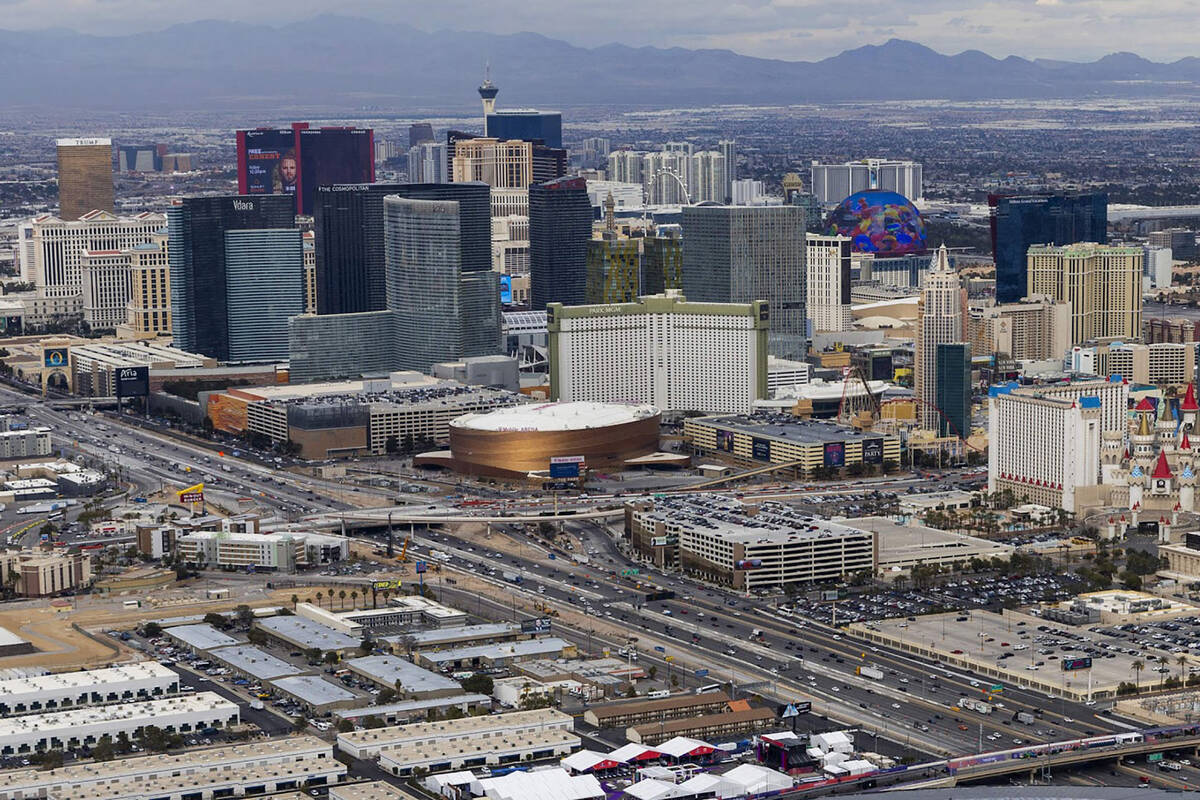High rollers can now spend less to play at Nevada private gaming salons
The Nevada Gaming Commission is hoping amendments unanimously approved Thursday to regulations overseeing private gaming salons at high-end casinos will jump-start interest in them and encourage gamblers to spend more within them.
Following more than an hour of debate, commissioners authorized changes they hope draw more attention to the private rooms that are separate from the public casino floors.
The Nevada Gaming Control Board in August recommended approval of amendments to Regulation 5 overseeing casino operations.
As commission debate on the amendments unfolded Thursday afternoon, it wasn’t clear whether approval would be the slam dunk some experts were anticipating. But commissioners eventually found common ground and approved the changes.
Gaming salons are special rooms in which high rollers and celebrities can gamble out of public view.
Most high-end casinos have them and offer play in them to big spenders, entertainers and professional athletes who don’t want to see pictures of themselves gambling spread on social media.
Among the Nevada casinos with salons are Wynn and Encore Las Vegas, Bellagio, The Venetian and The Palazzo, Resorts World Las Vegas, Durango and Reno’s Grand Sierra Resort.
Changes to regulations
Among the changes authorized within the amendments is the opportunity for experienced salon operators to make changes in salon operations through a waiver requested from the chairman of the Nevada Gaming Control Board who can administratively approve a request.
Other changes approved in amendments:
— The financial criteria for admission into a gaming salon would be reduced from $300,000. When salons were initially introduced in Nevada in 2001, the minimum financial commitment for a patron to play was $500,000. In 2008, regulators reduced that amount to $300,000. The Resort Association suggested that amounts be determined by individual properties, but the new amended threshold became $20,000.
— Poker would be added to the list of games offered in salons. The regulation would require an individual player buy-in of $10,000 with a total $20,000 staked for a game to be conducted.
— Salon slot machine minimums would be at the discretion of the licensee. That’s similar to existing rules allowing licensees to determine minimums for salon table games. Originally, slot machine minimums were included in legislation and set at $500, but the Legislature in its 2025 session unanimously approved the modification giving control to the casino operator.
— Casinos would be allowed to convert private salons to public gaming without prior written approval from the Control Board chairman. The amendments would also enable a guest of a casino patron qualified for salon play to stay up to 24 hours instead of six hours previously allowed.
Logging guests
A last-minute change approved by commissioners Thursday requires casinos with salons to keep a log that shows when each qualified salon patron and their guests enter and leave the salon. Originally, the regulation required companies to keep records only on patrons but not their guests. The added rule is designed to keep records on athletes and entertainers who often move through casinos with groups of followers. It’s also viewed as a means to identify and prevent potential money-laundering if a patron’s guest gambles.
Commissioner George Markantonis, a long-time casino executive who opened the salon at The Venetian in the early 2000s before he became a regulator, said it is important to log the identities of guests as the behavior of patrons of salons has changed dramatically since they first opened.
“The (financial) thresholds were put in as protection for the operators, too,” Markantonis said during vote deliberations. “It allowed us, the operators, to defer to, say, the law or the regulations when dealing with unwieldy customers. And certainly customers have become more unwieldy in the last decade or two than they were in those times.”
Markantonis questioned whether there was a need to limit the number of salon patrons in the room at one time. But, through testimony from Charlie Stone, executive vice president of casino operations and marketing at Wynn Las Vegas, he concluded that individual operators could manage play and that patrons themselves would self-police volumes through their own decisions or style of play.
“I’m not telling you anything you don’t already know,” Markantonis said. “If I’m playing $300,000 a hand, I don’t want some peon who just happened to be able to put $20,000 to get into the salon sitting down on the sixth seat on the (blackjack) table and deciding to call a blackjack card. So really, the players themselves are semi-policing themselves because then they come straight to the operators and say, ‘Don’t ever do that again,’ or ‘Don’t disrespect me,’ or ‘Get that guy out of here.’ or whatever.”
Contact Richard N. Velotta at rvelotta@reviewjournal.com or 702-477-3893. Follow @RickVelotta on X.



















